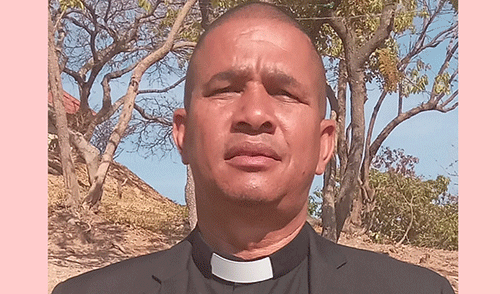This thought-provoking question is derived from observing the current situation of substance abuse among the youth in Namibia, especially Khomasdal, a suburb of Windhoek. Khomasdal was founded as a residential area for the Coloured and Baster people during the Apartheid era. Today, Khomasdal is a multi-ethnic/cultural residential area, but most of its population still belongs to these two ethnic groups.
A recent study conducted in Khomasdal among the youth 16-19 years showed alarming findings. The research shows that most of the youth use substances, of which alcohol and vaping are the preferred and most common substances.It was also discovered that there are 30 churches in the research area. Interestingly, none of these churches offer a substance use programme, although all the 130 interviewees confessed to being Christians.
In other words, substance use among the Christian youth in Khomasdal does not seem to be an issue for the Khomasdal Christian churches – or if it were an issue, they might not know how to respond to it, hence the question: Is the church asleep?
These findings prompt the question ‘What is the purpose of the church?’ and ‘How might it change the situation?’.
The church has a mission and lies at the very centre of the eternal purpose of God. Therefore, the church has both an inward and outward function. On the one hand, it is the church’s task to disciple, teach and equip believers.
On the other hand, it is the church-state to bring people to a saving faith in Christ and, thus, incorporate them into the church. Consequently, Christians share the gospel and make disciples of Christ across cultures.
In many parts of Africa today, local churches no longer minister just to one people group as they often used to be in the past, but increasingly reach out to members of other ethnic groups, making the church a multi-ethnic-cultural community.
Consequently, ignoring the needs of the youth in multi-cultural Khomasdal or Namibia goes against the calling and purpose of the church.
The churches in Namibia have a divine mandate to reach out to the youth to fulfil their God-given purpose to bring glory to God.
Such a theology recognises that the scope of the mission is both local and global.
Thus, pastoral care and counselling have a particular focus on specific situations.
It explores detailed and often complicated dynamics of the situation “to enable the development of a transformative and illuminating understanding of what is going on within these situations”.
Consequently, the counsellor/pastor does not just assume things but approaches every new situation with a hermeneutics of suspicion.
Through this process of critical observation, the pastor or practitioner/counsellor strives to ensure not only faithful practice but also authentic human living in the light of biblical teaching and culture.
Pastoral care and counselling are a rich and diverse discipline that embraces research that is empirical, ethical, political, psychological, sociological and pastoral.
Thus, there is a great need for pastoral care and counselling among the youth of Namibia, especially Khomasdal.
The economic conditions and social environment have created a situation that is characterised by despair, hopelessness, frustration and meaninglessness among the adolescents, which, in turn, has resulted in substance abuse.
If churches offered pastoral care and counselling programmes, they could help these young people overcome alcohol and drug abuse to live lives that are transformed by the Christian gospel. It is, therefore, essential to reach out to the youth and help them to free themselves from the destructive influence of alcohol, vaping, cigarettes, hookah/hubby bubbly and marijuana.
As mentioned above, sex and the use of alcohol and drugs have become an adolescent feature, especially among those who seek adventure as well as those who want to escape from anxiety and boredom.
This is the current situation in which many young people in Khomasdal find themselves, a situation where alcohol and drugs are freely available, and where most young people use them frequently.


